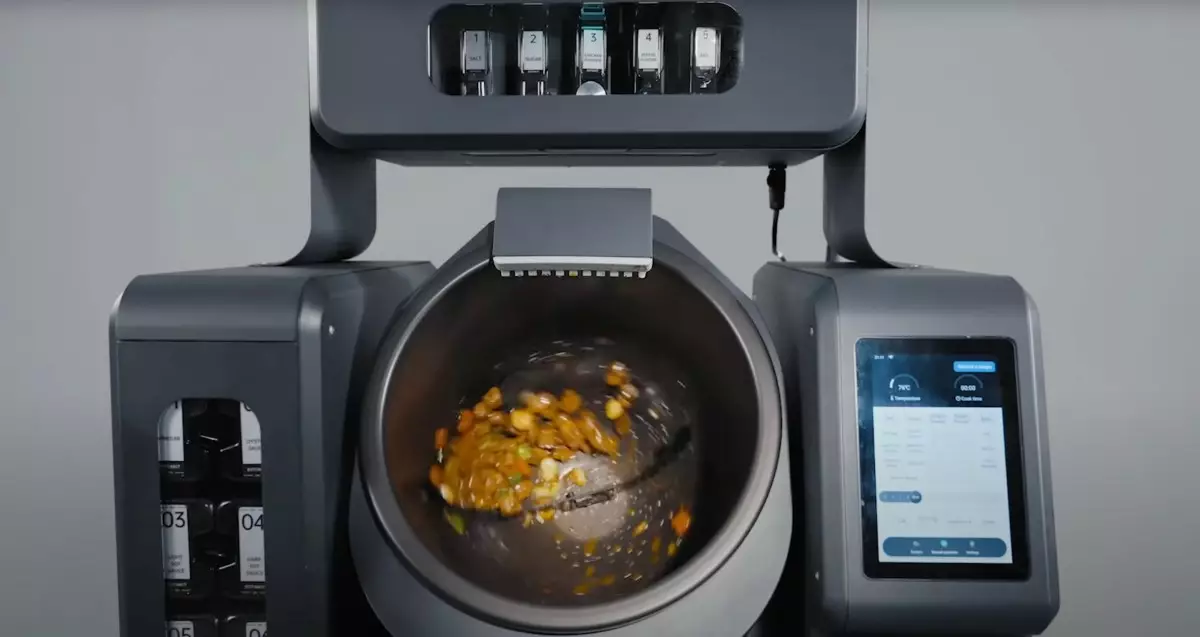The global pandemic has drawn attention to a critical issue affecting myriad industries, particularly the food service sector. Many restaurants have found themselves struggling with a significant labor shortage, forcing them to rethink traditional staffing models. This scenario has catalyzed the emergence of various startups that focus on automation technology, targeting the inefficiencies that arise from over-reliance on human labor. As various robotic solutions are introduced to help fill the gaps in staffing, the landscape of the commercial kitchen is poised for transformation.
Among the many automation strategies emerging, solutions range from sophisticated robotic arms to simpler, more functional devices. One company leading the charge is Miso, known for its eye-catching robotic arm designed to flip burgers, which perfectly illustrates the fusion of novelty with practicality in kitchen automation. Conversely, Botinkit’s Omni presents an innovative but less flashy alternative. While Miso draws attention due to its futuristic aesthetic, the Omni system is designed more for functionality than spectacle. It resembles a self-service food kiosk rather than a classic robotic counterpart, equipped with a touchscreen to facilitate operation.
Efficiency Through Technology
The real strength of the Omni system lies in its multifunctionality. Capable of performing tasks such as cooking, stir-frying, and stewing, it takes on responsibilities typically handled by a skilled chef. Microsoft-based calculations suggest that introducing an Omni system can effectively reduce human labor requirements by half. This efficiency is particularly appealing to restaurant owners struggling to maintain quality and consistency in their offerings—a persistent challenge when relying on human chefs whose performance can vary significantly due to subjective factors.
Shirley Chen, CEO of Botinkit, brings a unique perspective to the table. With her background as a strategist at KPMG coupled with her experience as a restaurant owner, she is well-equipped to understand the operational hurdles that restaurants encounter. Her vision involves restructuring how kitchens operate over the next decade, shifting away from traditional models towards a more automated infrastructure. “Using chefs introduces variables that can affect consistency; automation minimizes these factors,” she explained, underlining the importance of reliability in food preparation.
Investors are Taking Notice
The compelling business model and potential for significant impact have not gone unnoticed by investors. In July 2023, Botinkit successfully raised $13 million in a Series A funding round, which later extended to $21 million, validating investor confidence in the company’s growth trajectory. Although Asia remains Botinkit’s primary market, the startup is expanding its reach into Europe and the United States, fortified by this new influx of capital, which will be pivotal for their international expansion efforts.
Looking Ahead
As the food industry adapts to ongoing labor challenges and seeks to innovate, the role of automation is becoming increasingly prominent. Companies like Botinkit are setting the stage for a new era in restaurant operations, where technology not only assists but reshapes the culinary landscape. With efficiency and consistency as key drivers of success, the future of kitchen work may become less about traditional roles and more about integrating technological advancements that streamline operations and enhance the dining experience. As we move forward, the balance between human skill and robotic efficiency will define the next chapter in the evolving narrative of the restaurant industry.

